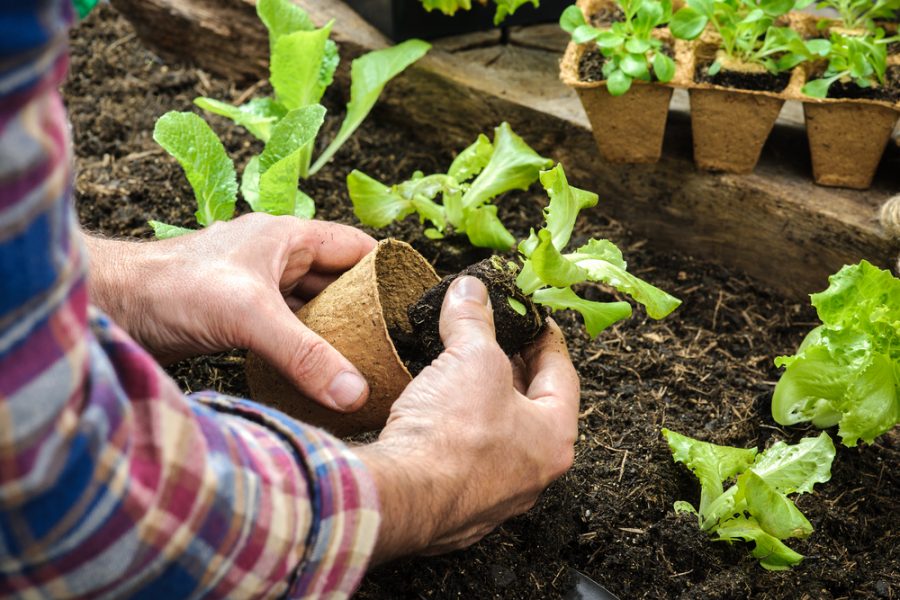
The Benefits of Gardening for Emotional Health
Many studies have shown that spending time outside is good for our body and especially for our mind. We all happen to be bored at some point indoors, and once we step outside, our spirit lifts. And for the lucky ones who have a garden and feel a bit depressed and bored, I highly recommend gardening as a therapy. For those who do not have a garden, I will give some tips on apartment gardening.
Why is gardening so crucial for emotional health?
The main reason why gardening is therapeutic is that our minds are focused on handwork. Whether that’s weeding, planting or repotting – while we do it, we don’t think about the stressful problems of everyday life. When focused on physical gardening work, we free our minds from those obsessive thoughts that might be getting us down.
Spending time outdoors reduces the levels of cortisol, a hormone caused by stress. Once we slow down and look at the beauty of our natural surroundings and labour, we feel peaceful and energised.
Many types of research found that people who spend time in the garden and general in nature experience reduced stress levels and anxiety. Even spending ten minutes in your garden can make you feel more joyful and alive.
Being in the garden increases our memory and attention span due to nature’s calming effect on our brains. Dealing with plants and taking care of them also increases productivity and creativity levels.
Mental benefits of gardening
One of the most significant mental benefits that gardening gives us is a sense of worth. That’s because we understand that we have a living thing to take care of. That provides us with a sense of responsibility, as we perfectly understand that if we don’t water or prune the plant, it may die. Sometimes, that can be a key moment in someone’s life, making them feel worthy and giving them a spark for life.
Gardening gives you a sense of control over your life. Many people cannot fully have their life in order and feel like things are getting too messy. While we are in the garden, we have control over everything. We decide how to arrange our vegetable patch, and it’s up to us where that flower should thrive. The satisfaction of a garden that is entirely under our control can be therapeutic, especially when nothing is going well in our life.
Apartment gardening ideas
If you don’t have a garden, don’t despair tho. You can create a charming indoor edible plants garden or flower garden in the corner of your apartment or balcony.
Start with your location
Choose a corner that receives bright and full sun. Plants need light to photosynthesise to survive. Fruiting and flowering plants need about 6-8 hours of direct sunlight exposure per day. The best places for growing plants are balconies and rooftops as they provide enough light and proper growing conditions.
Choose the suitable soil that fits a particular plant you want to grow. Enrich the soil with organic components such as compost. Mix your soil and ensure that it is light enough and provides more air for healthy growth.
Most plants need temperature variations (day-to-night). They benefit from optimal temperature differences. Some plants even require a period of latency every year before flowering. By the end of the autumn season, try to decrease the frequency of watering and fertilising. As soon as days get longer and plants get enough sunlight, you can increase the amount.
Most people overwater their plants
Every plant is different and has its watering preferences. Plants require more water on hot and sunny days but not that much in cold weather. Read the care instructions and check the soil’s moisture regularly. Use water at room temperature.
You can start with plants in pots
This is the best decision when it comes to balcony gardening. Be careful with pots’ weight. You don’t need to go for heavy ones. Self-watering containers with reservoirs are an excellent option to start with as they help keep the soil moist. Balcony plants need watering more than once a day due to the summer heat. Choose the pot size wisely, and ensure your veggies have enough place to grow. If your balcony is rather windy, you can create some shelter.
Some plants you can grow in pots are:
- Herbs – basil, chives, coriander, mint, parsley and oregano;
- Fruits – strawberries, raspberries, even citrus trees, such as lemon trees;
- Vegetables – tomatoes, cherry tomatoes, spring onions, beans, lettuce, and cucumbers.
However, if you don’t have enough space on your balcony floor, go for hanging baskets.
They are appropriate for trailing plants, but they can work for almost every plant, including veggies. Here are some colourful flowers which fit best.
- Begonias, Fuchsias, Petunias, Lobelias, Becopas, etc.
If you are a lover of edible plants, you can grow various options such as:
- Cucumbers, tomatoes, herbs, lettuce, etc.
Windowsill gardening
This is another option for apartments with small balcony spaces. Make sure you focus on windows that get a lot of daily sunlight exposure. You can also grow a mixture of plants in one container. Just make sure there is enough space for all of them. Remember to rotate them weekly so that they can receive an equal amount of sun.
Vertical garden planters
They are perfect for small apartments, too. They are easily attached to the wall and save you a lot of space. Your plants will need bright sunlight to thrive correctly, so make sure your vertical garden is positioned in the right direction. Feel free to experiment and grow various types of plants and flowers.


